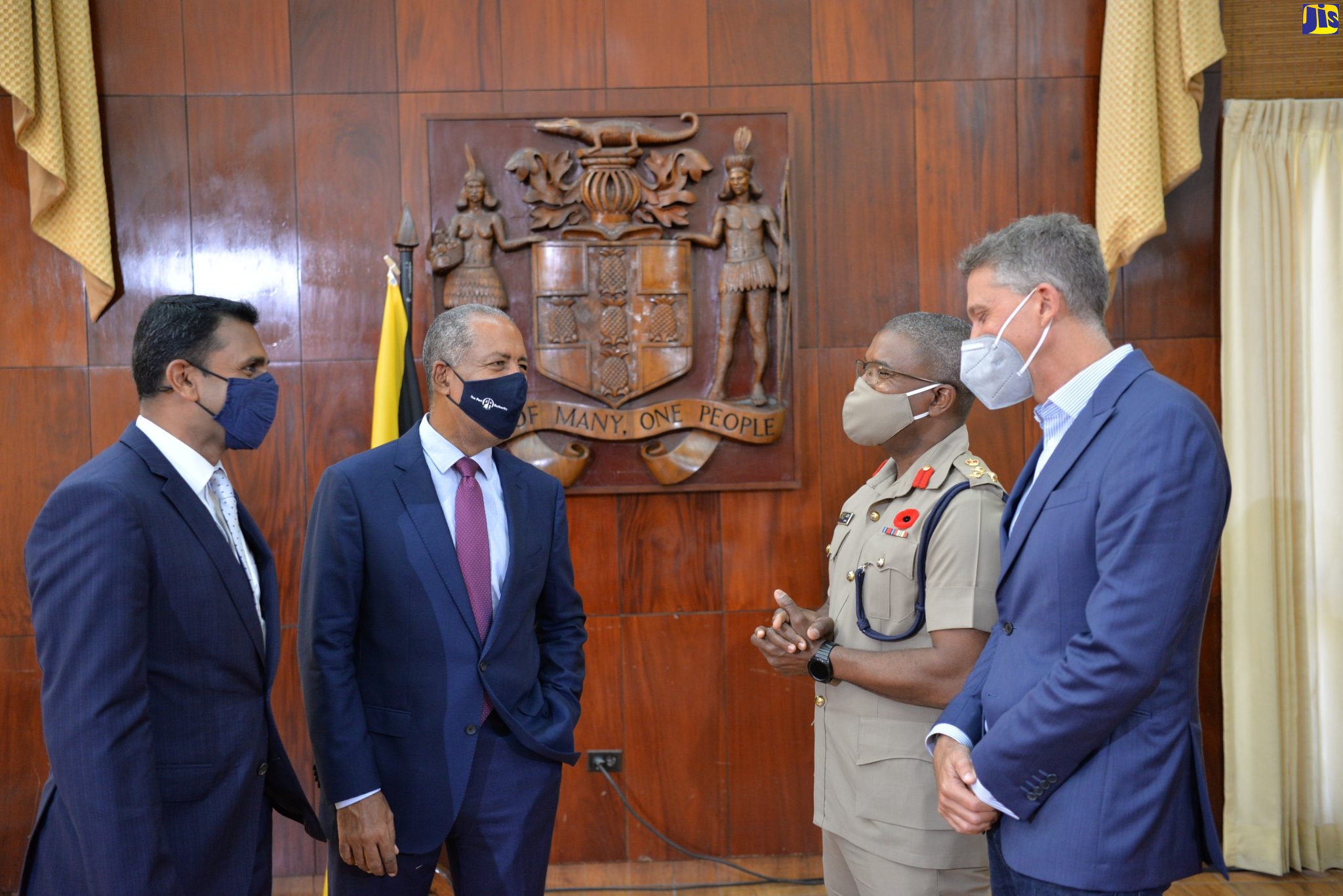Task Force Recommends Vaccination, Testing Protocol For Workers
By: , October 28, 2021The Full Story
Chairman of the National COVID-19 Vaccination Operationalisation Task Force, Professor Gordon Shirley, is recommending a protocol for the vaccination or testing of certain categories of workers as part of measures to improve coronavirus (COVID-19) vaccination coverage in the country.
He said that implementation of the protocol should be preceded by a robust education programme aimed at addressing vaccine hesitancy and obtaining the buy-in of workers.
“We need to set a timeline for the vaccination or testing programme. We recommend that in the case of the public sector… the Government should support the programme [testing]… for a while but the workers will eventually go on their own,” he said.
“In all cases, the companies involved, whether public or private sector, should undertake a strenuous process of educating the workers, trying to understand the source of their hesitancy, and providing support to help them overcome that hesitancy, and offer as much counselling as necessary. We believe that this is an essential part of the process,” he pointed out.
Professor Shirley, who was addressing a virtual press conference on Wednesday (October 27), argued that vaccine hesitancy among various essential groups is having a negative impact on the vaccination programme.
He cited the case of public health nurses, where vaccine take-up is about 50 per cent.
“It’s a particular problem because public health nurses are one of the most trusted sources of information on medical matters throughout Jamaica, particularly in the rural areas and in our inner-city communities. The public health nurse is their go to person when they are ill.
“We think that the public health nurses’ [low vaccination rate] has potentially cast a pall over the national vaccination programme, which should be removed, if we are to improve the vaccination rate,” he contended.
Professor Shirley suggested staging sessions to educate the nurses about the importance of taking the vaccines, with specialist doctors on hand to address their concerns.
“We know that many nurses who are of child-bearing age continue to worry about their reproductive health, so the best way to [address] that is to get gynaecologists whom they trust to explain to them in terms that they will understand, what are the issues and the risks associated,” he noted.
Professor Shirley said that similar measures should also be taken for those engaged in the education sector, noting that “protracted school closure poses a great existential threat to our nation”.
“When we go back to school, we think it is very important, too, to protect the teachers but also to protect the students by ensuring that our employees in the educational system, the administrators and the teachers, also become vaccinated, and we propose that that be an area in the public service that we would want to focus the vaccinate or test programme,” he said.
Professor Shirley is urging frontline workers to follow the example of the Jamaica Defence Force (JDF), which has achieved an over 90 per cent vaccination rate.
“We think that the other front-line workers like the Jamaica Constabulary Force (JCF), the other uniformed forces like the [Jamaica] Fire Brigade… are critical front-line workers, who have to interface on a day-to-day basis with the public. We believe that they should follow in the footsteps of the JDF,” he said.
The mandate of the task force is to examine and optimise the operational and logistical aspects of the national vaccination programme from end to end.
Some of the areas of focus include improvement of the operation of vaccination sites, the development of strategies to recruit suitable personnel to enhance the delivery of vaccination services, engaging with various stakeholders to encourage and facilitate participation, and to make recommendations for internationally accepted authentication of Jamaica’s vaccine delivery systems.
Members are from various industries such as shipping, logistics, business, health sectors, the legal fraternity, Government, the behavioural sciences, and the military.


